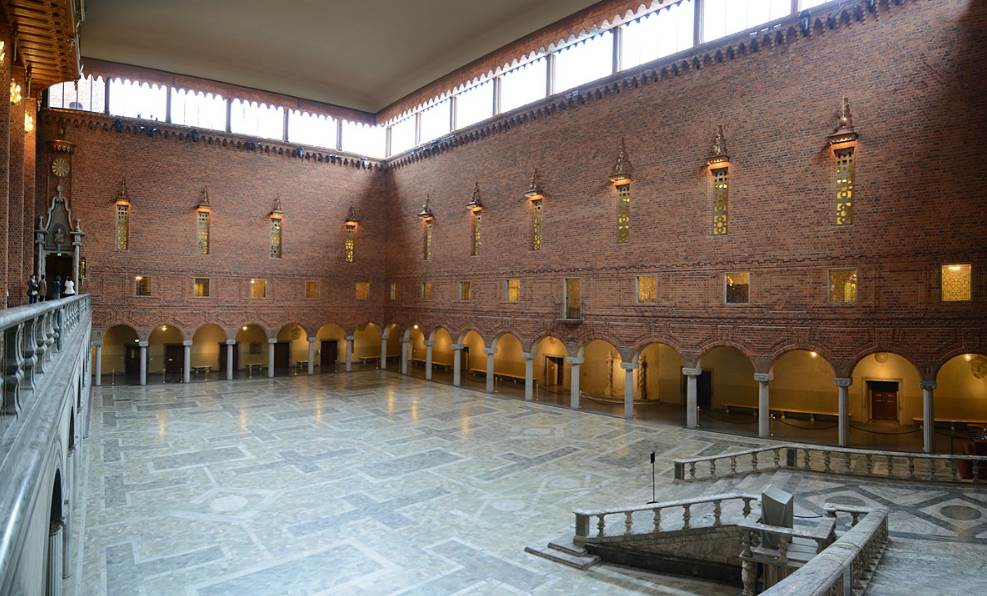When you visit Stockholm, Sweden’s capital and largest city, you’ll definitely come across an imposing red brick building.
That’s the magnificent city hall building, a structure that not only looks magnificent because of its location but also because of its distinctive design.
In this article, you’ll discover some of the most interesting facts about Stockholm City Hall, a fascinating feat of architecture in Sweden.
1. It’s located in the utmost eastern corner of an island in central Stockholm
Stockholm City Hall is locally known as the “Stadhuset” and is surely one of the most striking buildings in the city.
It serves as the seat of Stockholm Municipality and also as a tourist attraction that offers guided tours. It should be on your bucket list when you visit Sweden’s capital.
Stockholm is a remarkable place that was built on 14 different islands. It’s here that Lake Mälaren, the third-largest lake in the country, flows into the Baltic Sea.
The city hall stands right next to Riddarfjärden, the easternmost bay of this lake, and on the utmost eastern tip of Kungsholmen, one of the islands in central Stockholm.
The location alone makes this a fantastic feat of architecture as it can be admired from the nearby lake.
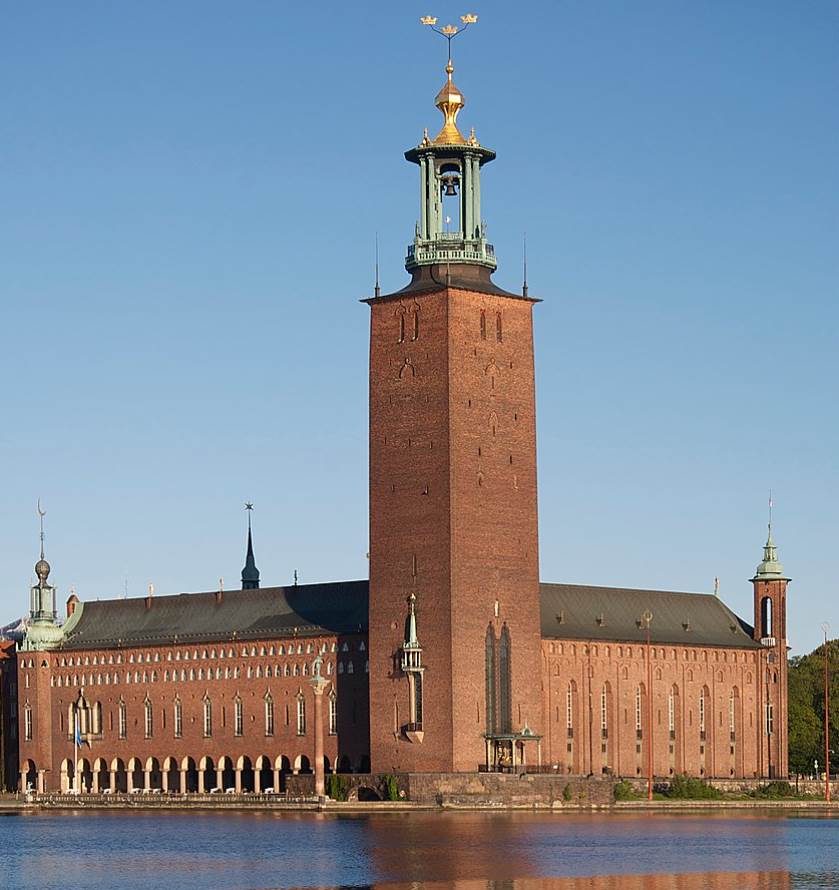
2. It replaced a gristmill that burned down in the “fire of the 19th century”
Because of its central location, the island of Kungsholmen has been home to structures ever since the 15th century. This was the time that Franciscan fryers established Grey Friar’s Abbey here.
By 1805, the location where the city hall stands today was occupied by another large building known as Eldkvarn, a huge gristmill.
This steam-powered mill was a revolutionary building in Stockholm in the 19th century but it burned down on October 31, 1878.
The blaze of the fire was so strong that it filled the entire night sky of Stockholm and its surroundings. Therefore, this tragic event was referred to as “the fire of the century.”
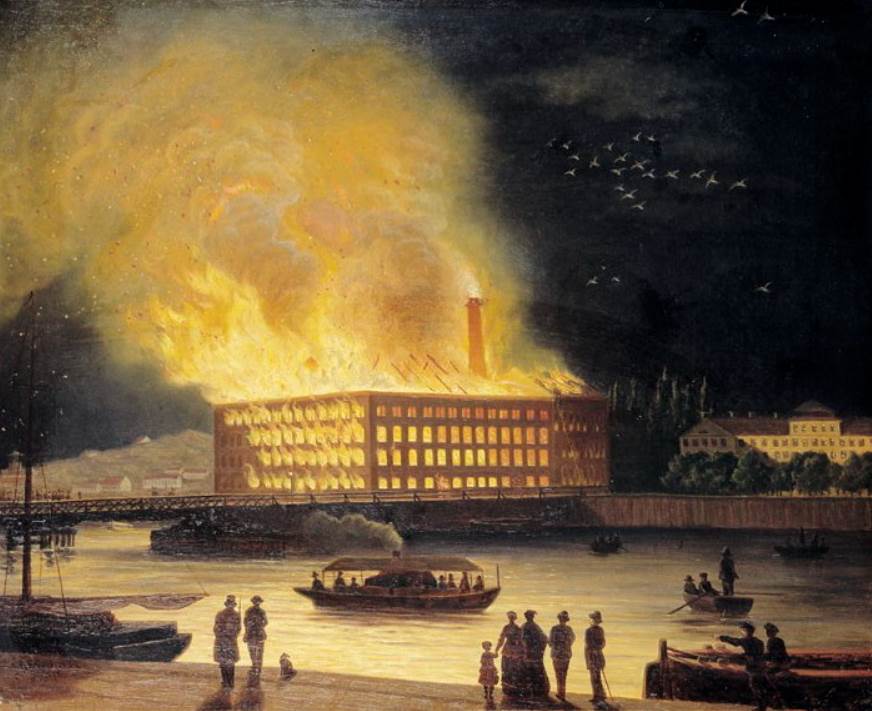
3. It was constructed in the first quarter of the 20th century
The fire completely flattened the former mill and the area remained vacant for several decades. It was the perfect location to build a monumental building.
The incredible building features nearly 8 million bricks, a type of brick known as “munktegel” or “monk bricks.” That’s because these were often used to build monasteries and churches in Sweden.
It took 12 years to build the structure between 1911 and 1923 and the result is one of the most fantastic city hall buildings in the world.

The city council launched an architectural competition to find a suitable design in 1907 and multiple architects submitted proposals.
The first round was won by Swedish architects Ragnar Östberg (1866-1945) and Carl Westman (1866-1936), both renowned architects at the time.
Westman was one of the first to adopt the National Romantic Style, a typical Scandinavian architectural style that flourished in the late 19th and early 20th centuries.
Because the timeframe when it emerges matches the Art Nouveau era, it’s considered to be a spinoff of Art Nouveau Architecture.
Westman didn’t win because Östberg’s design was chosen. He did, however, modified his plans extensively and incorporated elements that were included by Westman.
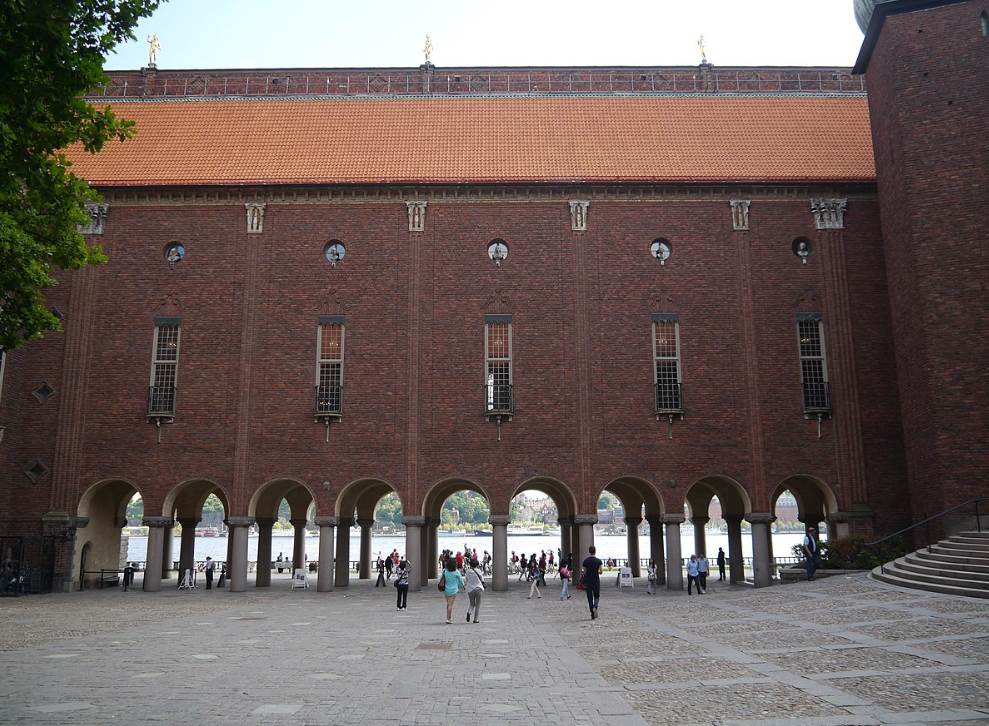
5. The imposing tower is topped with the national symbol of Sweden
The most dominant feature of the city hall is the huge tower that is located in the southeast corner of the building. It stands directly next to the shoreline which makes it even more impressive.
This tower stands 106 meters (348 feet) which makes it one of the tallest buildings in the city as well. You can visit the top of this tower with a lift or by clicking 365 steps.
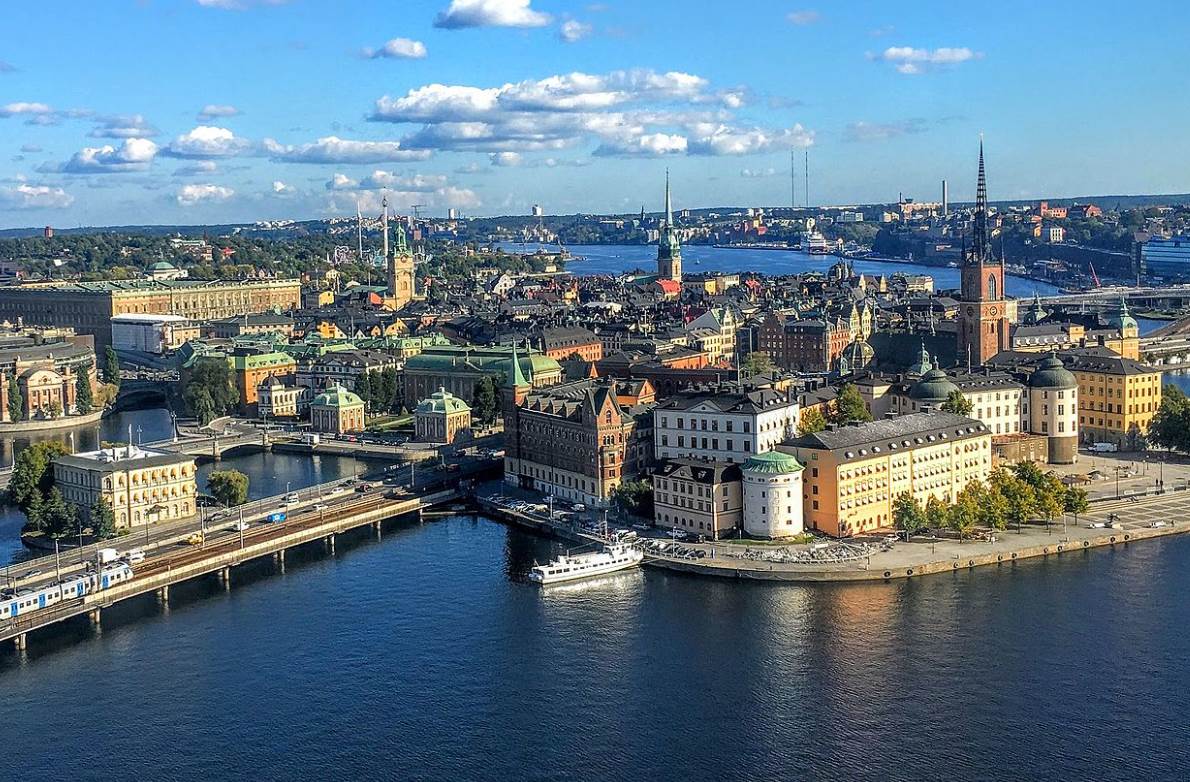
To give some reference, the Kista Science Tower is the tallest building in Stockholm and only stands 124 meters (407 feet) tall.
The lantern on top of the tower was one of the elements that Östberg included at a later time. It features a golden element topped with the Three Crowns.
This is the national symbol of Sweden and is featured in the coat of arms of the country.
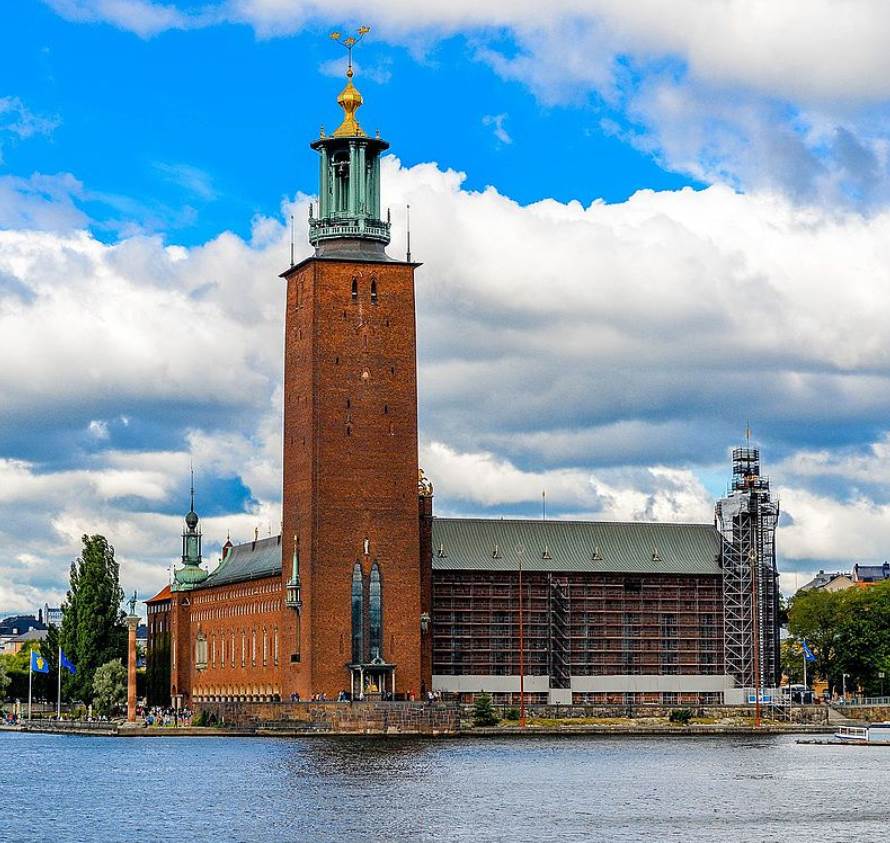
6. Stockholm City Hall was inaugurated on a special day in Swedish history
The building was completed in 1923 and it was officially inaugurated on June 23 of that year.
This day wasn’t merely chosen because it was a nice Summer day in cold Sweden but it had an important historic significance as well.
This was exactly 400 years after Gustav Vasa (1496-1560), a man who is also known as “Gustav I of Sweden,” arrived in Stockholm.
He started the civil war that ended the Kalmar Union. The Swedish War of Liberation is also known as “Vasa’s Rebellion” and he is therefore considered to be the founder of modern-day Sweden.

7. The most stunning room inside the building is decorated with 18 million golden tiles
So what about the interior of Stockholm City Hall?
I’m happy to say that it’s equally impressive as the interior. The inner courtyard provides access to the many rooms inside the building of which the Golden Room is the most fascinating.
This room is named after the 18 million golden tiles that decorate it. These mosaics depict various scenes from important moments in Swedish history.
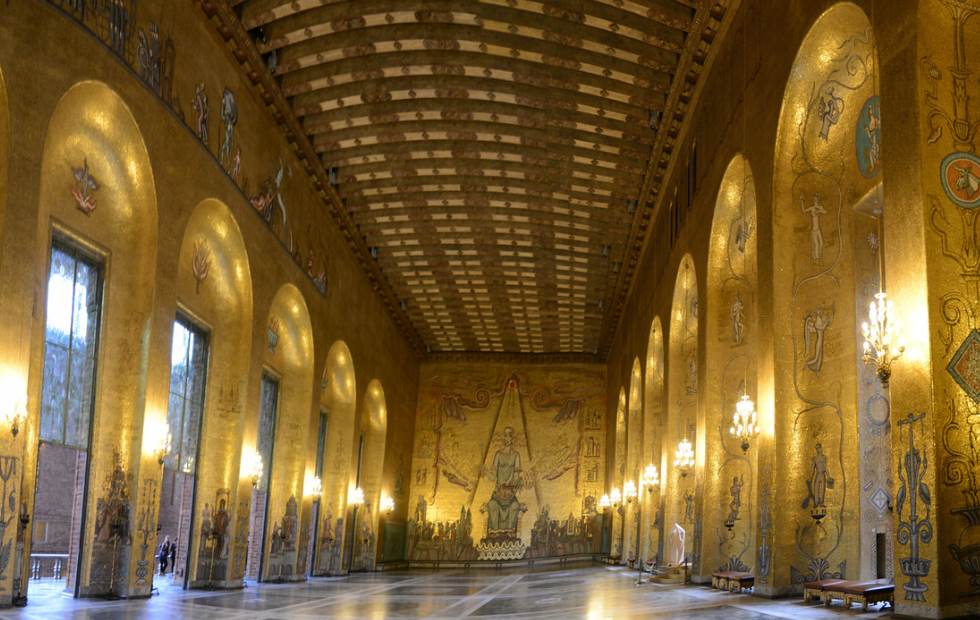
8. The structure is the location of a world-famous annual event
While the Golden Room is the most beautiful inside Stockholm’s City Hall, the Blue Room is the most famous.
That’s because it’s here that the annual banquet of the Noble Prize ceremony is held. Yes, this place is bustling with distinguished guests once a year.
The first thing you’ll notice, however, is that there is nothing blue about this room. It got its name because Östberg’s initial plan featured walls that were decorated with blue glazed tiles.
The fickle-minded architect changed his plan here as well and removed these tiles, exposing thousands of the nearly 8 million bricks that make up this stunning building.
